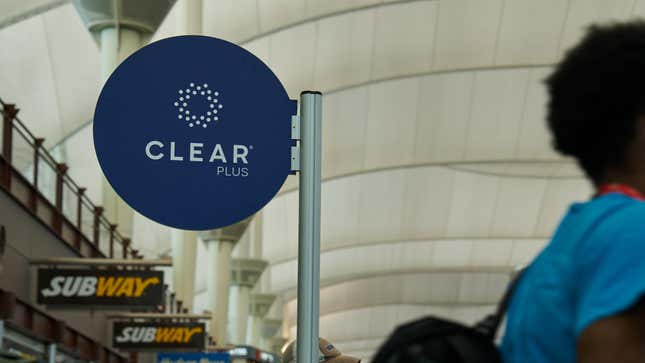
Who would have guessed that eliminating privatized airport security line-cutting would be a topic that would have Democrats and Republicans reaching across the aisle? California lawmakers introduced a bill in February that would ban CLEAR in its present form, according to POLITICO. While the bill has bipartisan support, major airlines are staunchly opposed to the change and warn that airfare could rise as a result. However, politicians have focused on the unfairness of allowing flyers to pay to cut ahead of everyone else.
While CLEAR markets itself as “an identity company that powers effortless experiences wherever you go,” most people know the company for its airport security service. Passengers pay $189 every year to have their identity verified by this private company. Then, CLEAR users are ushered to the front of the regular security line like VIPs at a nightclub. This is markedly different from TSA PreCheck, a government-run program that allows expedited airport screening through dedicated security lanes.
California’s SB-1372 would allow third-party vendors, i.e. CLEAR, to continue operating only if it opens its own dedicated security lanes. Airlines, the company’s most vocal partners, have taken the bill as an existential threat to the service. Delta, United, Southwest, JetBlue, Alaska and Hawaiian have sent an open letter to the California State Senate stating, “We are concerned that the bill’s passage could further increase air carrier operating costs in the state, potentially resulting in increased fares or decreased service options.” CLEAR pays $13 million annually to California’s airports.
Allowing a private company to play a significant role in airport security already has its risks, but forcing CLEAR to use its own dedicated lanes could be even more dangerous. In August 2023, a passenger used a thrown-out boarding pass to get a CLEAR escort. The passenger still had to go through a TSA screening at the end of the escort, but it raised enough questions for Congress to want answers.







